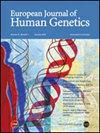澳大利亚与基因检测相关的社会人口学和健康因素:基于 45,061 名参与者的队列研究的启示。
IF 3.7
2区 生物学
Q2 BIOCHEMISTRY & MOLECULAR BIOLOGY
引用次数: 0
摘要
随着基因检测的普及,考虑不同人群间检测模式的差异非常重要。我们研究了澳大利亚 45 岁及以上人口研究(45,061 名参与者)中自我报告的基因检测情况,并检验了与社会人口学和健康特征的关联(多变量逻辑回归)。9.2%的参与者报告曾经进行过基因检测;3.9%报告进行过与疾病相关的检测,5.2%报告进行过与疾病无关的检测,0.7%报告既进行过与疾病相关的检测,也进行过与疾病无关的检测。与疾病相关的基因检测与年轻、女性、癌症和心血管疾病史以及癌症家族史密切相关。与疾病相关的检测还与高学历密切相关(大学与学校证书:调整后 OR [aOR] = 1.50 [95%CI:1.29-1.75]; 证书/文凭与学校证书:aOR = 1.40 [95%CI:1.20-1.63] );有提示性证据表明与较高的家庭收入有关(90,000 澳元以上与本文章由计算机程序翻译,如有差异,请以英文原文为准。

Sociodemographic and health factors associated with genetic testing in Australia: insights from a cohort-based study of 45,061 participants
With increasing availability of genetic tests, it is important to consider differences in testing patterns between population subgroups. We examined self-reported genetic testing among 45,061 participants of the Australian population-based 45 and Up Study, testing for associations with sociodemographic and health characteristics (multivariable logistic regression). 9.2% of participants reported ever having genetic testing; 3.9% reported disease-related testing, 5.2% non-disease-related testing, 0.7% both disease-related and non-disease-related testing. Disease-related genetic testing was strongly associated with younger age, female sex, history of cancers and cardiovascular disease, and cancer family history. Disease-related testing was also strongly associated with higher education (university versus school certificate: adjusted OR [aOR] = 1.50 [95%CI:1.29–1.75]; certificate/diploma versus school certificate: aOR = 1.40 [95%CI:1.20–1.63]); there was suggestive evidence for association with higher household income ($AUD90,000+ versus <$AUD30,000: aOR = 1.22 [95%CI:1.02–1.46]), which strengthened when not adjusting for education (aOR = 1.34 [95%CI:1.13–1.60]). These results suggest further work on ensuring equitable access is needed to prevent potential health inequities.
求助全文
通过发布文献求助,成功后即可免费获取论文全文。
去求助
来源期刊

European Journal of Human Genetics
生物-生化与分子生物学
CiteScore
9.90
自引率
5.80%
发文量
216
审稿时长
2 months
期刊介绍:
The European Journal of Human Genetics is the official journal of the European Society of Human Genetics, publishing high-quality, original research papers, short reports and reviews in the rapidly expanding field of human genetics and genomics. It covers molecular, clinical and cytogenetics, interfacing between advanced biomedical research and the clinician, and bridging the great diversity of facilities, resources and viewpoints in the genetics community.
Key areas include:
-Monogenic and multifactorial disorders
-Development and malformation
-Hereditary cancer
-Medical Genomics
-Gene mapping and functional studies
-Genotype-phenotype correlations
-Genetic variation and genome diversity
-Statistical and computational genetics
-Bioinformatics
-Advances in diagnostics
-Therapy and prevention
-Animal models
-Genetic services
-Community genetics
 求助内容:
求助内容: 应助结果提醒方式:
应助结果提醒方式:


